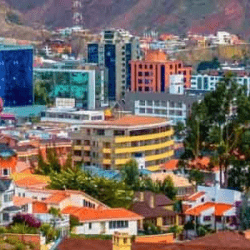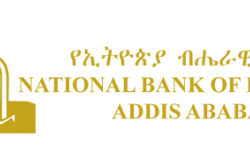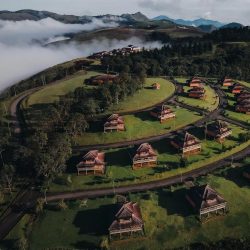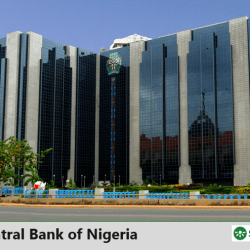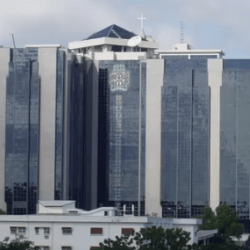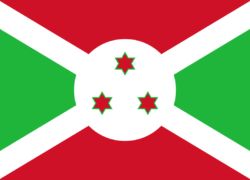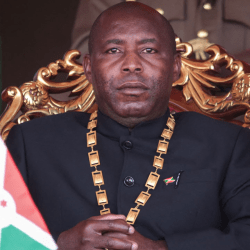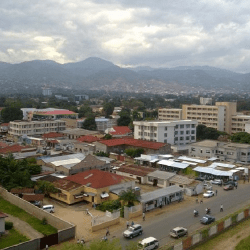History of Burundi’s central bank, the Bank of the Republic of Burundi
The Central Bank was created under the name of “Bank of the Kingdom of Burundi” by the law of 9 April 1964 the day after the split, provoked by the Rwandan authorities at the time, of the Banque d’Emission du Rwanda et du Burundi (B.E.R.B.), the central bank common to these two countries since 4 August 1960. Prior to the latter date, the role of issuing institute was first performed by the Banque du Congo Belge (BCB) from 1916 to 1952, and then by the Banque Centrale du Congo Belge et du Rwanda-Urundi (BCCBB-U).










The Bank of the Kingdom of Burundi commenced its activities on 19 May 1964, after the liquidation of the B.E.R.B.
However, the law of 9 April 1964 bore the mark of the circumstances in which it was drafted and passed. The country was faced with the urgent need to set up a national bank to ensure the seamless monetary functions of the common bank in the process of liquidation. This law was therefore quickly repealed and replaced by the law of 21 January 1965 approving the statutes of the Bank of the Kingdom of Burundi.
Following the proclamation of the Republic on 28 November 1966, the official name of the Bank became “Bank of the Republic of Burundi”, the abbreviation “B.R.B.” remaining unchanged (Decree-Law No. 1/60 of 28 April 1967 amending the Law of 21 January 1965).
In anticipation of the promulgation of the Banking Act (Law No. 1/2 of 3 January 1976), the statutes of the B.R.B. were updated with a view to bringing them into line with the new legal provisions (Law No. 1/1 of 3 January 1976 amending the Law of 21 January 1965).
Finally, faced with the challenges of banking deregulation and financial innovations and exchange rate liberalization, it became imperative to review certain provisions of Law No. 1/1 of 3 January 1976 with a view to providing the Issuing Institute with the structures that would enable it to fully fulfil its mission. It was in this context that Law No. 1/036 of 7 July 1993 was promulgated. After more than a decade, Law No. 1/34 of 2 December 2008 was promulgated on the Bank’s Statutes, which are in force until today.
Reference: brb.bi/en/content/historic
Burundi
Burundi is a country in East Africa. It is bounded by Rwanda to the north, Tanzania to the east and south, Lake Tanganyika to the southwest, and the Democratic Republic of the Congo to the west.

- Capital: Gitega (political), Bujumbura (economic)
- Area: 27,834 sq km
- Population: 11.8 million
- Languages: Kirundi, French, English



In 2019 the capital moved to Gitega, although Bujumbura remains the commercial capital.




Burundi is divided into 18 provinces, 119 communes and 2,638 collines (hills). Provincial governments are structured according to these boundaries.
List of 18 provinces of Burundi
- Cankuzo
- Gitega
- Rutana
- Ruyigi
- Karuzi
- Kayanza
- Kirundo
- Muyinga
- Ngozi
- Bururi
- Makamba
- Rumonge
- Bubanza
- Bujumbura Mairie
- Bujumbura Rural
- Cibitoke
- Muramvya
- Mwaro
Burundi provinces according to zone
• Eastern Burundi
Cankuzo
Gitega
Rutana
Ruyigi
• Northern Burundi
Karuzi
Kayanza
Kirundo
Muyinga
Ngozi
• Southern Burundi
Bururi
Makamba
Rumonge
• Western Burundi
Bubanza
Bujumbura Mairie
Bujumbura Rural
Cibitoke
Muramvya
Mwaro
The country has many ethnic groups but the 3 main ones are: Hutu, Tutsi and Twa.
Hutu is the majority while Tutsi, a dominant minority.
After independence in 1962 Burundi was heavily troubled by periodic, violent tensions between Tutsi and Hutu.
A civil war, sparked off in 1993, made Burundi the scene of one of Africa’s most intractable conflicts.
Burundi, one of the world’s poorest nations, is struggling to emerge from a 12-year, ethnic-based civil war.













Majority of Burundi’s population is Hutu. Power, however, has long rested with the Tutsi minority, which had long controlled the army and most of the economy, particularly the lucrative coffee exports.
Few real cultural differences are distinguishable between the two peoples, and both speak Rundi (Kirundi). Such linguistic homogeneity is rare in sub-Saharan Africa and emphasizes the close cultural and ethnic ties among the peoples in Burundi.
Even so, ethnic conflict between the Hutu and Tutsi has plagued the country for decades in the past.
Neither the presence of an international peacekeeping force nor the ratification of an agreement to share power between Hutu and Tutsi were immediately effective in curbing interethnic violence that also spilled into the neighbouring countries of Rwanda and the Democratic Republic of the Congo.
Burundians have been thereafter faced with the task of quelling ethnic dissent, promoting unity, and rebuilding the country.
Burundi ranks among the poorest countries globally. Economic instability, political unrest, and reliance on subsistence agriculture contribute to its economic struggles.
The country has an underdeveloped manufacturing sector.
Government corruption and incompetence hinder development of a prosperous private sector as companies seek to navigate an environment with ever-changing rules.
The economy is predominantly agricultural employing more than 80% of the population.
Burundi’s primary exports are coffee and tea, which account for a large part of foreign exchange earnings.
Other agricultural products include maize, sorghum, sweet potatoes, bananas, manioc (tapioca); beef, milk and hides.
Even though subsistence farming is highly relied upon, many people do not have the resources to sustain themselves.
This is due to large population growth and no coherent policies governing land ownership. In 2014, the average farm size was about one acre.
Besides agriculture, other industries include: assembly of imported components; public works construction; food processing and light consumer goods such as blankets, shoes and soap.
Some of Burundi’s natural resources include uranium, nickel, cobalt, copper and platinum.
The country is home to rich cultural and natural diversity, with various languages, religions, traditions, and wildlife.
It is a member of several regional and international organizations, such as the African Union, the East African Community, the United Nations, and the Francophone.
